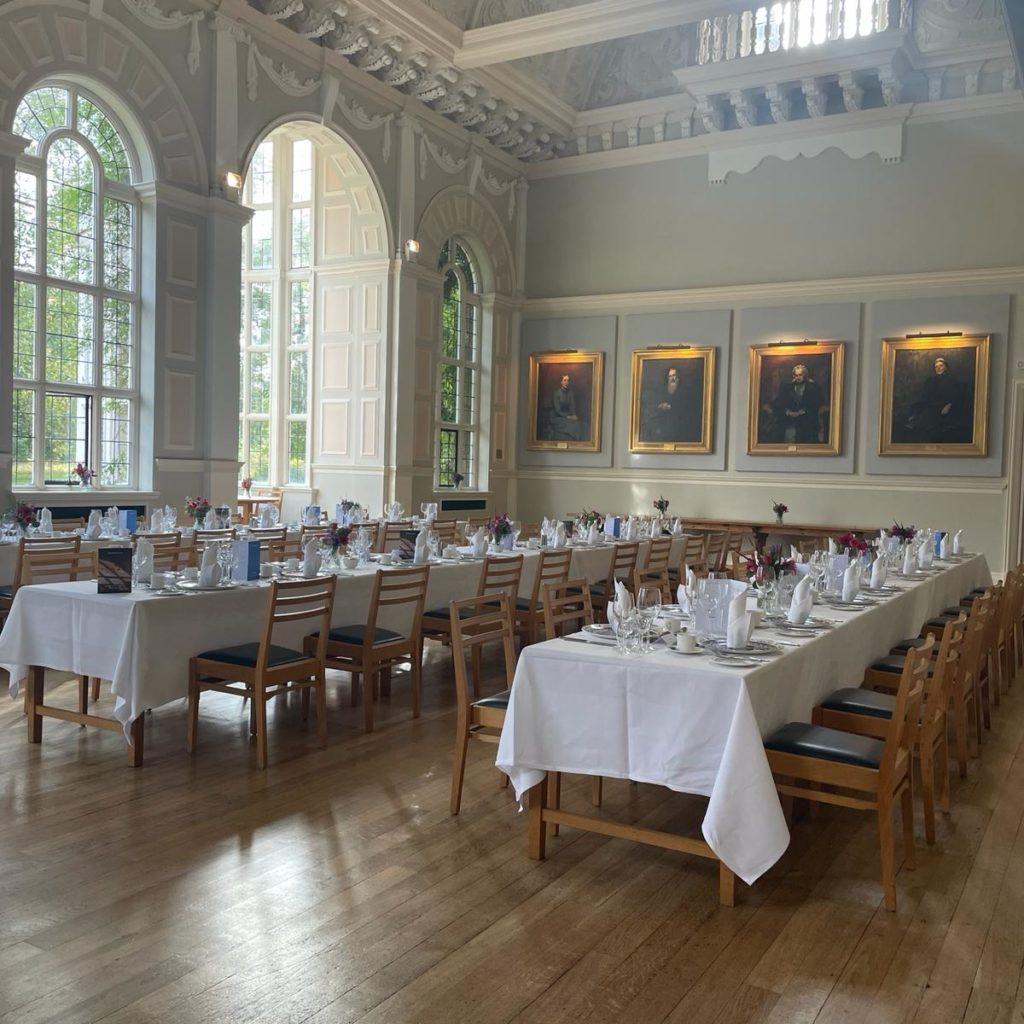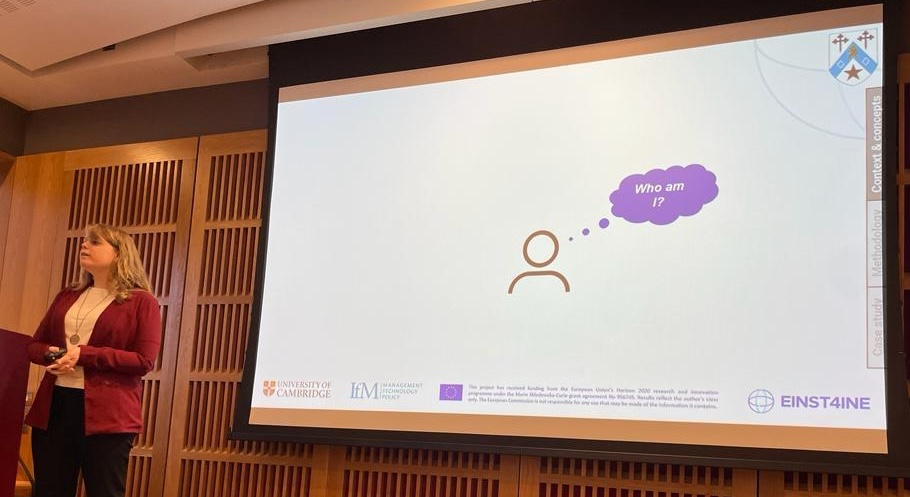So, what’s your research about? – Presenting to a non-expert audience
The question: “So, what is your research about?” is one that many of us have heard several times during our PhD. Sometimes we are asked this question by other researchers in our field, sometimes by people that are no experts. While all PhDs are trained in how to present their research to other experts – via conferences, academic abstracts, papers, etc. – not all are exposed or learn how to present their research to non-experts.
In this blog post, I will share my thoughts on why knowing how to present your research to a non-expert audience is important and will also share some of my experiences in doing so.
Why it is useful to learn to present your research to a non-expert audience
- Outreach: give knowledge back
Speaking to non-experts ensures that you are passing on your knowledge and also give it back to those that have helped you create it. This is not only the case, if you present to your research participants – but also to anybody else. Maybe your funding comes from the government, which actually means taxpayers. Further, the core goal of research is to expand knowledge. However, knowledge expansion only happens if the new knowledge is shared – and this includes also outside of academia! So, I would say for a true academic and researcher it is essential to also share their knowledge outside of their field. - Reflect on your research
When you prepare a talk for a non-expert audience, you have to take a step back from your research and ask yourself what it is really about. This makes you necessarily reflect on your research, makes you see the whole (or at least you can try – it can be hard) and might support you on seeing a storyline that you can extract. - Making it concise & easy to digest
One of the most important things is to make your message clear, to present your research in a concise manner and to make it easy to digest. This can actually be a lot harder than it sounds – but I do think that if you manage to break your research down into easier bits, then you understand your research really well – plus, you won’t lose the attention of your non-expert audience! - Asking: why should one care?
The next important thing to retain the attention of your audience is to make it interesting to them. Why should they care? How is this relevant for them? And if you feel like you just cannot make it relevant for them personally, then why is this relevant for society, knowledge extension etc.? It’s probably good to bring this message across rather early in your talk – then they know why they should continue to listen. Best is, if you manage to bring it up in the end again – this is not only a nice rhetorical closure than, but also leaves them with a take-home message that makes them remember that your research connects to them. - Grounding in reality
I am serious with this – sometimes presenting your research to non-experts does help you ground your research (and maybe yourself) back in reality. Stepping away from very theoretical concepts and abstract ideas and tying them back to things that matter in everyday lives. This might sound hard for some topics, but there is always a connection. Be creative! For example, my master thesis topic on a specific semi-conductor detector and how it is sensitive for specific energy ranges was relevant in reality, because in theory (and more years) this kind of detector could be relevant in medicine. - Learning new vocabulary to describe your research
When you speak with a new audience, you should understand them a bit first: who are they? What might they know already? Based on this, you might know what kind of vocabulary you should use. Here, I don’t only mean field specific vocabulary. Also consider if maybe this word has other connotations for some audiences (e.g., “coding” can mean programming for some audiences and “using the Gioia method” for others). Plus, we know that it is always easier to learn about a new topic, if it is presented in familiar terms. - Exposure to other opinions
Lastly, presenting to non-expert audiences will ensure that you get exposed to other opinions, other perspectives and you might learn about a new way of looking at your research. In addition, especially people who do not know much about your topic are often good at spotting “obvious” inconsistencies or “obvious” questions. Often just because they are curious and don’t know what questions have an easy answer (i.e., you just didn’t mention it because you thought it was not worth the time) and which ones are actually not easy to answer.
While I am always asked to present my research to industry at various events (e.g., through the STIM consortium in Cambridge), this year I was also asked to give talks to non-expert audiences. Thus, I was giving talks to three quite different non-expert audiences. I will shortly share some experiences and insights about each of them.
Industry audience
In this case, I was presenting my research to people from various industries holding different positions (but mostly management level).
- Really important here: ask yourself, what is important to them? What is interesting for them? Industry people are really busy, if you don’t capture their attention you might lose them quickly. In addition, if you are interested in a collaboration, you also want to show them why they should want to collaborate with you!
- Use words that they can understand and relate to (linking to my note above). Use terms that are used in companies to explain things, or words that are in everyday use. Of course, you don’t have to through all of your nice-expert-words out of the window, do keep some in – but then make sure to clearly explain them.
- Graphics and pictures are very powerful. They capture attention and can sometimes simplify things (plus people enjoy having to read less).
- Highlight how research can be done together, how industry and research can support each other. Speaking of co-creation, action research, etc. is powerful and creates an atmosphere of community.

Newnham Donor Dinner
Non-academic audience
Here I was asked to give a short, easy talk at a dinner for donors of my college. My talk was in between courses and should showcase what different types of research is happening in Cambridge.
- If you are asked to do something like this – remember, this is not a talk, it is a speech! It was the first time for me too, and was not super easy at first. Concentrate on the story line, and that it really flows. Don’t put too much content in here, it’s more important that people can follow you and that you highlight important things several times.
- You likely won’t have visuals, so try to make things tangible by giving examples people can relate to, using things that are relevant in everyday life or for this specific audience, etc.
- You might face different generations in your audience – do consider this and explain your research in terms that can be understood by varying age levels.
- Likely your goal here is to make people excited about your topic – try to engage a discussion for after your talk. So it is less about presenting yourself or your research, but more about showing that this is relevant.
- I do think that word games, a catchy phrase etc. can be really helpful to capture attention – plus, it is easier to remember then.
Audience of academics from other fields

Giving a talk to academics outside of my field.
As there are many graduate students in Cambridge, there are also many events organised by students related to research. I was asked by my college and another college to present my research at one of their student-run events. This was for other students from various fields, other researchers – anybody who is interested.
- Likely you are speaking to other academics in this case. This means that lots of words can have other meanings to them (think of my example of “coding” from above). Consider this when writing your talk. Think about what they might already know and what not. But don’t just leave out the things you think they will know, but still mention them and then add: “as you probably know” – or ask if you should elaborate or not.
- Do explain concepts and theories in this setting, your audience will be familiar with more abstract explanations. However, still make sure that it is understandable without knowing the details. For example, try to stay away from too much specific vocabulary and only use it when necessary.
- Again, graphs, symbols, pictures, etc. make it easier to capture and retain attention. And it can also help you to explain things more clearly.
- A good storyline that people can follow does help a lot. Even if you feel like your research does not have a nice story line (yet) – your talk can still have one. Include an agenda in the beginning and tell people how your talk will be structured. And then of course, follow that structure!
- Even though the audience consists of academics, you can still give them too much information – try not to create information overload but stick to the important bits.
- A catchy title can do wonders, do try to think of one, as this can really capture a lot of attention!
You see, speaking to non-experts can be quite diverse and is definitely very useful for you, apart from outreach activity! I encourage everyone to consider presenting outside of academia, it is really rewarding and can be lots of fun.


Add a Comment